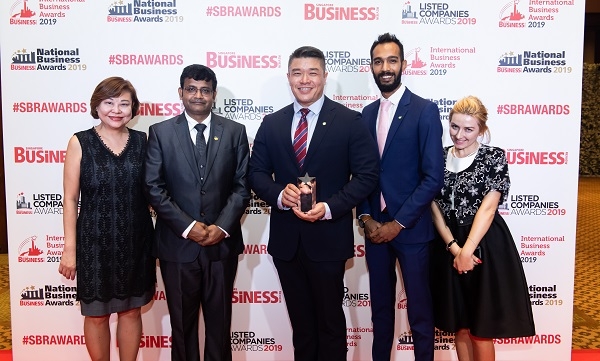
Amity Global Institute attains Education Award at 6th SBR International Business Awards
Amity’s industry-oriented and experiential curriculum is well aligned with its students’ career path.
Whilst most schools view module delivery in isolation and allot more emphasis on instructional match, Amity Global Institute aligns implementation issues, such as lesson plan and assessment approach, with the educational institution’s learning space and environment, particularly with instructional goals, course and learning outcomes, learner characteristics and prerequisites, as well as instructional strategy and conditions for a learner-centred environment.
Module Delivery and Monitoring Plan implemented at the educational institution ensures that this holistic alignment is met and requires a peer review prior to the plan’s approval.
Because of this innovative learning experience initiative, Amity Global Institute obtained the Education Award in the recently concluded Singapore Business Review International Business Awards.
The institution offers Industry Oriented Management Programmes designed by leading academicians and corporate world members, making the establishment an ideal launch pad for students looking to get onto the fast track of their careers.
As part of the worldwide leading Amity Education Group, Amity Global Institute benchmarks with the latest educational content and teaching methodologies across the globe.
At the institution, all teachers are required to prepare and document the Module Delivery and Monitoring Plan for all the modules they deliver. Besides including a compulsory peer review, learner’s feedback is also collected during mid-term and the end-term to be checked and monitored by the programme head or academic department head, who then
introduces timely intervention actions based on the collected learner’s feedback.
Initially, all the Module Delivery and Monitoring Plans used the BSCS 5E Instructional Model, which includes five key phases: engagement, exploration, explanation, elaboration and evaluation.
Each phase has a specific role in contributing to the teacher’s coherent instruction and the learners’ formulation of a better and deeper understanding of scientific knowledge, attitude and skills.
The model frames a sequence and organisation of programs, units and lessons. It builds on the works of other instructional models and is supported by various timely research on learning. A tried and tested model, it has a long history in developing curriculum materials that reflect the most recent research about teaching and learning.
However, Amity Global Institute’s teachers are exposed to American educational theorist David Kolb’s Experiential Learning Theory that presents a cyclical model of learning consisting of four stages: concrete experience, reflective observation, abstract conceptualisation and active
experimentation.
In this theory, Kolb combines experience, perception, cognition and behavior to support his belief that knowledge is created through the transformation of experience.
Furthermore, they were also introduced to the Honey and Mumford approach, which is a followup to Kolb’s theory.
The model was developed to report management trainees’ learning style preferences and has been subsequently applied to a wide range of subjects, including higher education students.
Honey and Mumford’s Learning Style Questionnaire has been proposed as an alternative to Kolb’s Experiential Learning Style Model and is designed to probe the relative strengths of four different learning styles—activist, reflector, theorist and pragmatist—with no single learning style having overwhelming advantage over any other.
Nevertheless, teachers are provided with freedom to choose the most appropriate instructional model for the Module Delivery.
In one of the audits, the auditor remarked that the Module Delivery Plan is a strength that has ensured delivering quality education in an extremely innovative way of linking module lesson plan with delivery through teaching strategies.
Additionally, the Module Delivery Plan also requires input from both peer reviews and student feedback during mid-term and end-term. To further ensure effectivity, the plan also includes post-delivery checks by finding relationship with attendance and marks scored.
This is all in line with Amity Global Institute’s plan to advance knowledge and foster life-long learning whilst nurturing talent to serve both business and society.
With this strategy, Amity Global Institute provides the best mix or practice and theory to ensure students’ success.
The International Business Awards, presented by Singapore Business Review, was held last 11 July 2019 at Conrad Centennial Singapore.
This year’s nominations were judged by a panel consisting of Henry Tan, Managing Director, NEXIA TS; Choo Eng Chuan, EY Asean Markets Leader and Partner, International and
Corporate Tax Services, Ernst & Young Solutions LLP; Ng Jiak See, Executive Director, Head of Corporate Finance Advisory, Deloitte Singapore & Southeast Asia; and Toh Kim Teck, Assurance Partner, Foo Kon Tan LLP.
Check out the event photos during the awards night here.
If you would like to join the 2020 awards and be acclaimed for your company’s exceptional technology innovations, please email Eleonor Angeles at eleonor@charltonmediamail.com
























 Advertise
Advertise






